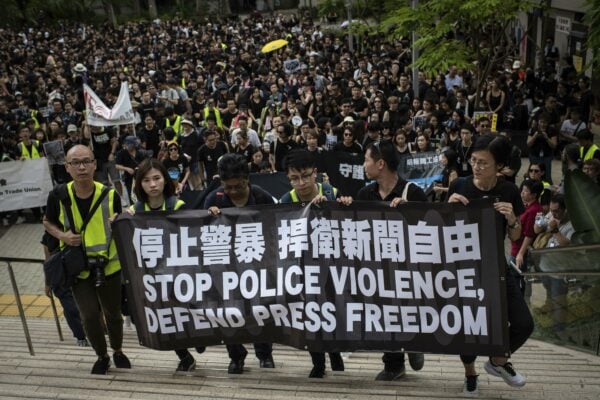
There has been some discussion comparing modern times to that of the pre-First World War period. While that era was characterized by the social and economic effects of industrialization with little labour protections and the struggle of people living under colonial rule, the comparisons could likely be made to any era that suffered from conflict. What characterizes today’s era in relation to that period is how actions against minority groups were often ignored, even if they were done en masse and in a brutal fashion. The most stark example from that period in human history is the human rights atrocities taken against the Armenian people, actions that are often still ignored to this day and that have scarred their community indefinitely.
When looking back on our generation, it will likely be the case that those in the future will see that a lot of symbolic acts were committed to, while actual torture and human rights atrocities were almost wholly ignored. People that have suffered some of the worst treatment in modern human history, especially against women, has occurred under our watch. Minorities like the Yazidi women and girls have been brutalized to such a degree that it rivals tortures done during the Holocaust. Movements to acknowledge and help them have been more or less muted with the exception of a few small aid groups and those who are aware, committed to, and have sacrificed to save Yazidis, especially to help those women and girls who are the targets of sexual violence and torture. Many groups in the same region are some of the oldest living communities in human history, and many of those are in the process of being wiped out because they are a minority group. Human rights need to apply to everyone, even if it is not politically expedient. Consciously not doing so could be considered a criminal act.
The manner in which media and some governments have muted the actions taking place in Hong Kong is also quite surprising. For many countries there is a significant community of people from Hong Kong living there, along with historic ties to the British Commonwealth where a similar system of government and democracy exists. For those that are democratic cousins with the people of Hong Kong it might be the case in the future that we will look back at our era and ask why so little was done to assist people who share our values and commitment to a democratic system. While some countries have opened up their immigration and refugee systems to those who wish to leave Hong Kong, there is little discussion and understanding as to why the dismantling of a democratic country is so troubling, and how the value of such a society and culture would be an eternal loss to the world community. The acceptance of the loss of Hong Kong’s democracy is a reflection on how those who live in democracies view their own freedoms and rights. When democracy is devalued by those that oppose it, it is common place, when it is discarded by those who are free under it, it will be seen as absurdity by future generations.